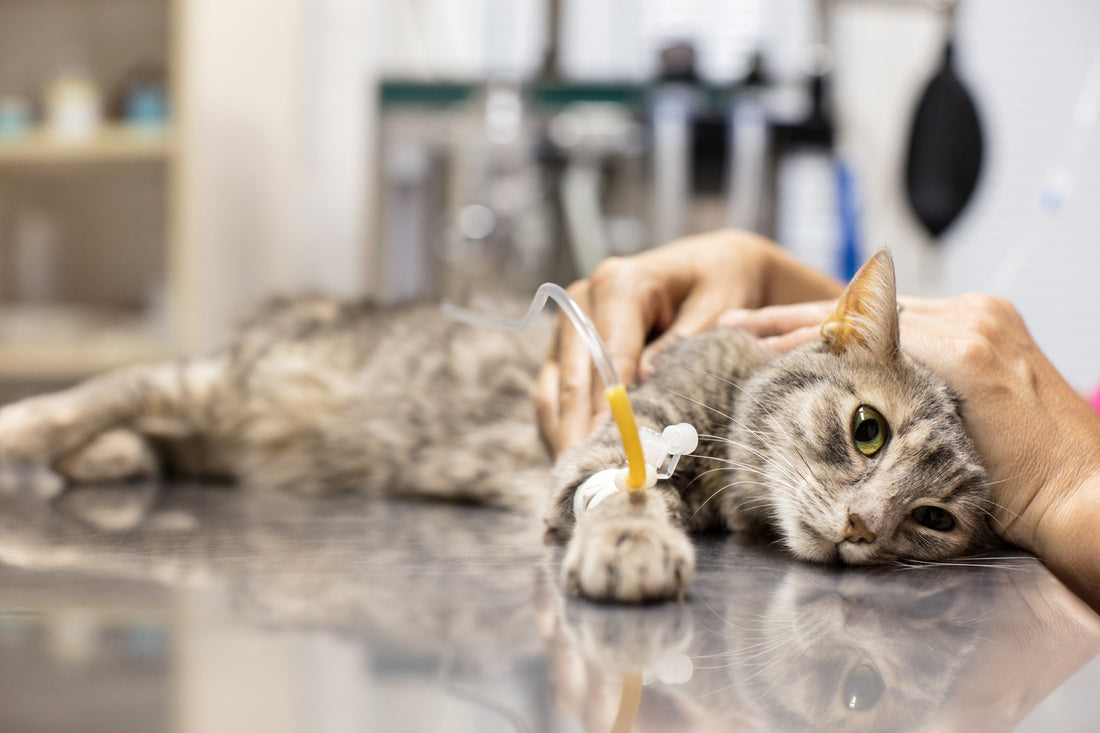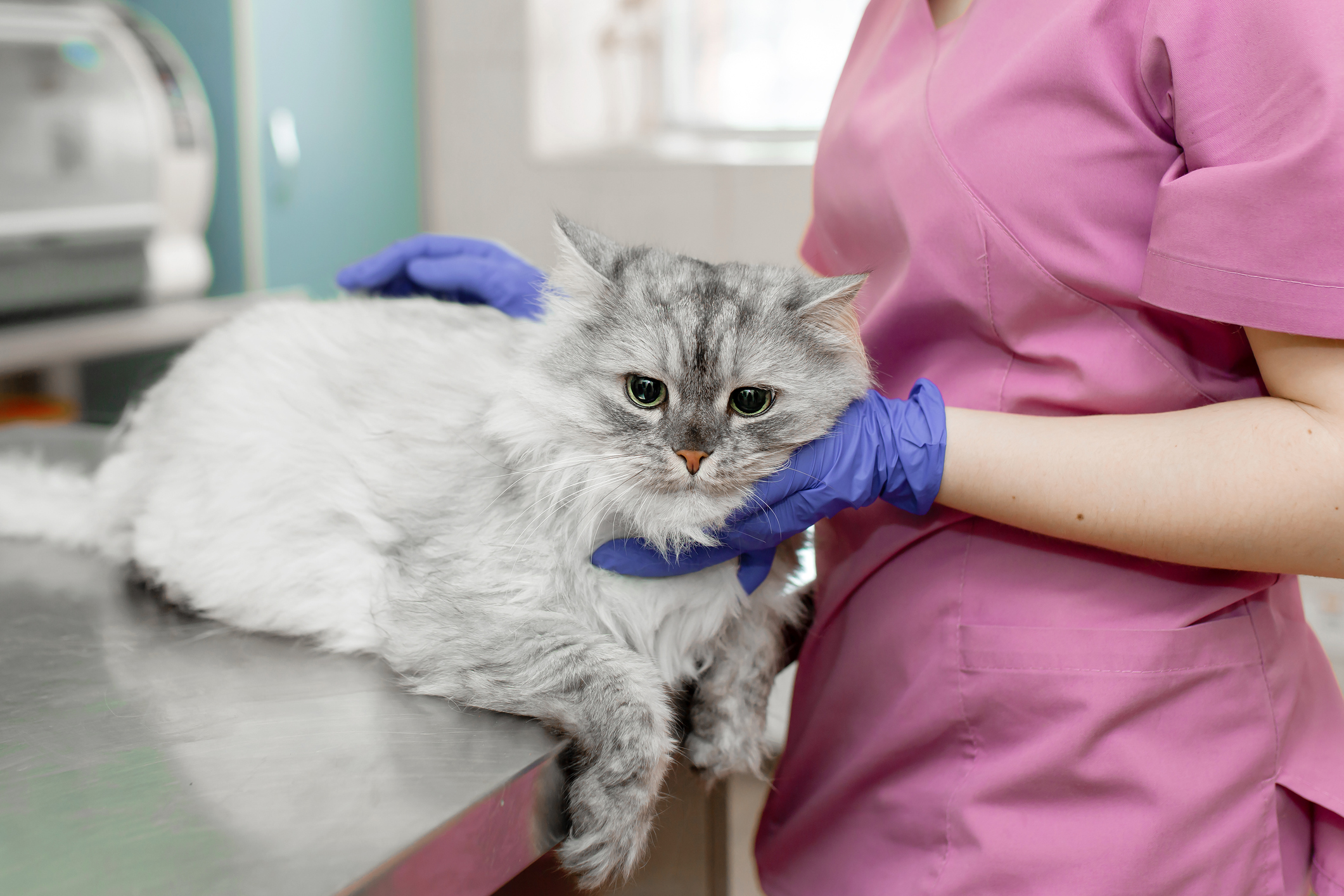
5 Things That Can Make Your Cat More Susceptible to Cancer
Cancer is one disease that’s not very well understood—both in humans and in our pets. Although experts have successfully identified many aspects of cancer, such as its different forms, its symptoms and the treatments that may prolong your furry friend’s life, there are many questions about cancer that remain unanswered. One of these questions is, “What causes cancer in cats?”
Unfortunately, research is limited on the exact causes of cancer, so there is no certain way to prevent your cat from developing it. However, there are some formative observations that may give pet parents a clue into some of the potential causes of cat cancer. Being aware of these links may help you reduce your pet’s chance of developing the disease down the road.
Does genetics play a role in cat cancer?
One of the most documented factors related to cancer in pets is breed. In dogs, certain breeds have been identified as being more susceptible to some forms of cancer than other breeds, pointing to a strong genetic link. However, it’s not necessarily the same in cats.
For the most part, links between cat breeds and cancer are not nearly as strong. It is suspected that purebred cats may be more susceptible to cancer than non-purebred cats (but this does not mean your purebred cat will get cancer).
Cancer may be hereditary, though. Cats from families or litters that have developed cancer may be at a higher risk for cancer, as well. Unfortunately, it’s not always easy to identify your kitty’s family history, so many pet parents aren’t aware of this genetic link.
Other cancer-related factors

Outside of breed and genetics, there are a few other factors that might increase your cat’s risk of developing cancer. Experts are still studying the effects these things have on cats and their cancer-causing risks, so they aren’t proven to cause cancer. Regardless, they’re still good to be mindful of for your pet’s overall health.
- Fur color or lack of fur: Cats with white or light-colored fur, very short fur or no fur at all may have a higher risk of developing squamous cell carcinoma, or skin cancer. This form is cancer is often found on the ears, nose, eyelids and other exposed portions of a cat’s skin—especially if they like to lay in the sun all day.
- Intact females: Female cats who have not been spayed may have a higher risk of developing mammary cancer. These malignant tumors are linked to a cat’s reproductive hormones, so spaying reduces their risk. Experts believe that a cat’s risk is most dramatically lowered if they are spayed before their first or second heat cycle.
- Smoke exposure: Smoking tobacco products around your pets may increase their risk for cancer. In cats, smoking is most often linked to squamous cell carcinoma of the mouth. Cats may ingest toxins from cigarettes that linger on their fur, leading to oral cancer. They may also have a higher risk of lung cancer, caused by inhaling secondhand smoke.
- Chemical exposure: Many chemical products are suspected to be linked to an increased risk of cancer in cats. Things like herbicides and insecticides used on lawns and gardens may affect dogs more often, due to higher exposure, but can affect cats, too. Other chemicals, including those found in air pollution, can also hold carcinogens that may be to blame for some cancers in cats. Supporting your cat’s health with antioxidants and immune boosters, using air filters in your home and keeping your cat away from chemical agents may help limit their exposure and reduce their risk.
- Viruses: Certain viruses may also increase your cat’s risk of developing cancer. Feline leukemia virus, or FeLV, is one of the most widely known examples of this. Prior to the development of a vaccine, FeLV was one of the leading causes of lymphoma (cancer of the white blood cells) in cats.
Of course, age is another factor at play when examining a cat’s risk of disease. Older cats have a higher chance of developing cancer. This is likely because of their prolonged exposure to cancer-causing agents in the world around them.
Although a few potential cancer risks have been identified, there’s no way to be sure that your cat will or will not develop cancer. Remember: If your kitty does develop cancer, it’s not because of anything you’ve done wrong! There is still much to learn in the realm of cat cancer, its causes and its treatments.
The best thing you can do is familiarize yourself with the most common types of cat cancer and the symptoms they typically present. This way, you’ll be better equipped to identify cancer early and get your kitty the help they need as fast as possible.


